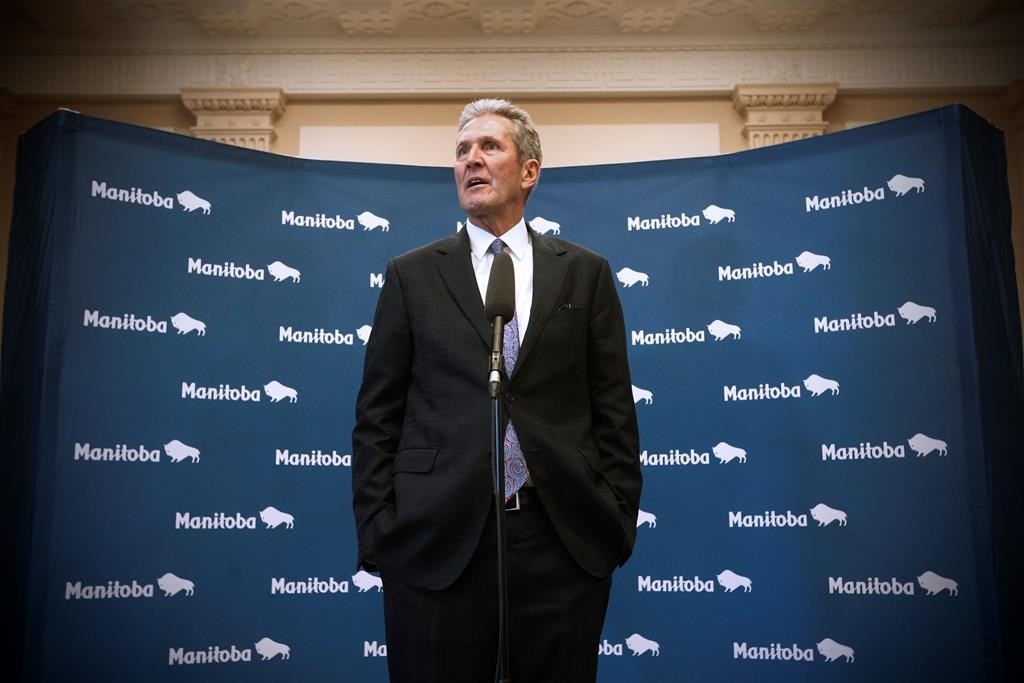Manitoba’s governing Progressive Conservatives will choose a new party leader and premier Oct. 30.

The party executive met Monday night and also set down rules, including an entry fee of $25,000.
Premier Brian Pallister announced earlier this month he would not seek re-election, and said Monday he is prepared to step aside within a few weeks.
Pallister also said the future of his planned education reforms and other bills still before the legislature will be decided by his successor, not by him.

The only person so far who has announced a plan to run for leader is former health minister Heather Stefanson, who has garnered the support of most Tory caucus members.
She has promised to scrap the education reform bill, which would eliminate elected school boards and has faced strong criticism across the province.

Get daily National news
Stefanson and any other potential leadership candidates face several requirements, such as having to sell a minimum of 1,000 new or renewed party memberships.
The cutoff for signing up supporters as members is Sept. 30. The Sept. 15 deadline to enter the race is five days before the federal election, which will be a barrier to any federal candidate that might consider a provincial leadership run as a backup.
Royce Koop, who teaches political studies at the University of Manitoba, said the rules seem to help Stefanson’s potential bid.
“With the tight timeline, it will be easier for Stefanson, given her strong advantage in caucus,” Koop said Monday.

“She can rely on those (constituency) organizations throughout the province to deliver members’ votes.”
Paul Thomas, professor emeritus at the university, also said Stefanson has an advantage.
“This makes it hard for any candidate starting from behind, especially a candidate who is not elected or not a well-known public figure.”
The timing of the leadership race raises questions about how the Tories will manage the fall sitting of the legislature that starts Oct. 6.
Votes and public hearings on the education reform bill and other proposed laws are scheduled for October and early November.
One bill aims to crack down on blockades of roads, rail lines and other infrastructure. Another would temporarily halt public regulatory hearings on electricity rates and allow the government to set rates unilaterally. A third would remove the automatic right to binding arbitration in labour disputes.




Comments